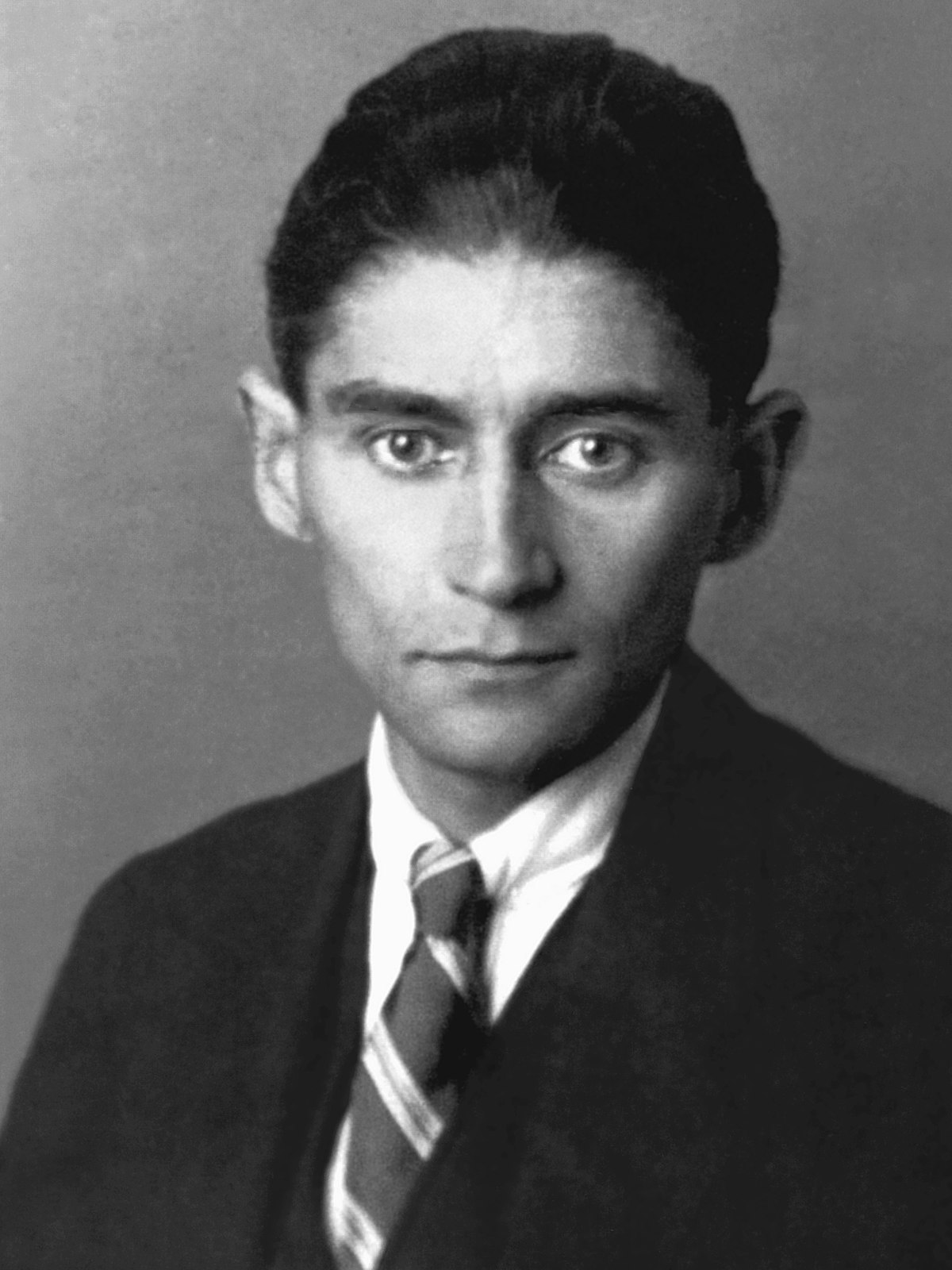BIOGRAPHY:
Franz Kafka is a famous writer recognized as a key figure in 20th century literature. In his works, absurdity and fear of the outside world and higher authorities contribute to feelings of anxiety and anxiety; they combine realism and fantasy. Several of Kafka’s works – “America”, “Castle”, “Labyrinth”, “Angels Don’t Fly” – are included in the compulsory curriculum of universities.
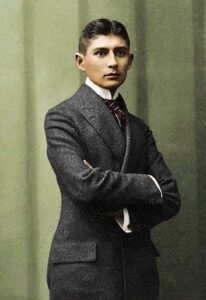
The life of the famous writer Franz Kafka was short and rather monotonous. If it were not for the need to maintain his fragile health, he would have spent all the years allotted to him by fate in his native Prague. He loved his city and hated it at the same time. He loved to wander through ancient nooks and crannies and admired its majestically gloomy castles. In his works, he tried to transform them beyond recognition, and to populate them with his heroes, with their strange appearances and problems that were inherent to him. Kafka remained an unrecognized writer during his lifetime; it was only later, after his passing, that his name became known throughout the world. And only thanks to the fact that his best friend broke his promise and did not burn, but, on the contrary, published everything that had previously been collecting dust in the closet. It is a pity that real triumph and the title of one of the best German writers of the 20th century came to Kafka only after his death.
CHILDHOOD:
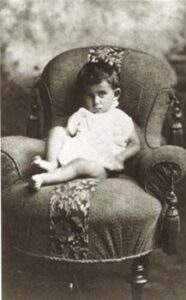
Franz Kafka was born on July 3, 1883 in the ancient city of Prague, which at that time belonged to the Austro-Hungarian Empire and was considered one of the most developed economic and cultural centers. The empire was multinational, but it cannot be said that the Czechs, Jews and Germans who lived there lived peacefully next to each other. Franz had little interest in ethnic strife and political machinations, but he constantly had a feeling of his own uselessness. Against the backdrop of social phenomena, his consciousness and character were formed, and a feeling of being useless and thrown to the sidelines of a person’s life appeared.
Family upbringing also played a big role in shaping the writer’s personality. He sorely lacked the love and care of his loved ones, especially his father, he felt like no one needed him in the house, even though he was the first-born in the family. His father, a Jew, Herman Kafka, sold clothes and dry goods. Mom, Julia Kafka (née Levy), was the daughter of a wealthy brewer, Jacob Levy, and at one time received a good education.
After Franz, two more sons and three daughters were born in the family. The boys died before reaching two years of age. The father was constantly at work, the mother either helped him in the shop or took care of her daughters, and almost no one paid attention to Franz. In order to occupy himself with something and brighten up the gray days, the boy began writing short stories, but no one was interested in this. Gradually, under the unfavorable influence of his father, the boy’s character and his literary style were formed. It should be noted that the head of the family was quite tall, almost two meters, spoke in a thick bass voice, and next to him the boy felt like an insignificance. Over the years, Kafka developed an inferiority complex that haunted him throughout his life.
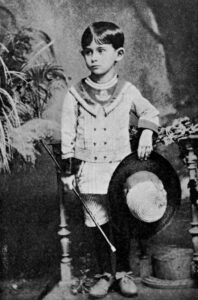
The fact is that Herman had high hopes for his only son; he was going to transfer the family business to him, but the frail offspring did not fit in with the image of the successor of the business.
Years later, Franz described his resentment in a letter to his father, but never sent it. He said that for many years he suffered when he remembered a huge man who pulled him out of his warm bed and pushed him out onto a cold balcony. All his life he remembered this feeling of his own insignificance for his own father.
In 1889, Franz was sent to primary school, from which he graduated in 1893. After this, he continued his studies at the gymnasium, where he became interested in amateur performances and became an organizer of theatrical productions. Having received the certificate, Kafka easily passes the entrance exams to the Faculty of Law at Charles University. In 1906, he defended his doctoral dissertation in law, which he wrote under the guidance of Alfred Weber, the famous German economist and sociologist.
LITERATURE:
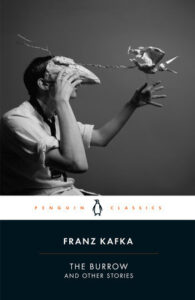
The work biography of the future famous writer began as an employee of the insurance department. Gradually, he climbed the career ladder and rose to a high-ranking official in the same department, although he himself considered this work a secondary occupation, elevating literary activity to the first place. Kafka’s health did not allow him to reach retirement age; he left prematurely. The bosses highly valued the diligence and hard work of their employee, unlike Franz himself, who hated this work and despised both the management and his own subordinates. He tried to forget himself with the help of literature, writing solely in order to somehow justify his worthless (in his opinion) existence and escape from the harsh reality of life. Kafka did not even intend to publish; he was so complex that he considered himself completely mediocrity.
All of the writer’s works were carefully kept by Max Brod, his faithful friend. They met at one of the meetings in the student club, where they talked about Nietzsche. Max constantly tried to persuade his friend to publish his stories, but Franz stubbornly refused. Only in 1913 did he finally capitulate under Brod’s pressure – he published a collection of short stories called “Contemplation.” Literary critics spoke very well of his work and called him an innovator, but even this did not convince the self-critical master to continue publishing. He himself did not like his own creativity, in which he saw only an outlet. During the writer’s lifetime, only a small part of his works was published; all the most significant things were published only a few years after his departure to the other world.
In the fall of 1910, Franz, accompanied by his faithful friend Max, left for Paris. However, on the ninth day, the writer felt a sharp pain in his stomach and was forced to return to his native Prague. After returning, he begins work on his first novel, The Missing. After some time, he gave it another name – “America”. Almost all of Kafka’s works are written in German. If you read the originals, you will notice that they are written in dry bureaucratic language, which lacks various turns of phrase and literary delights. But in some incomprehensible way, the author managed to combine in his works this dullness and homeliness with unusualness and even absurdity. Fear emanates from the pages of his works – the author is terrified of the outside world and the highest court.
Anxiety and despair are heard in every line and are conveyed to the reader. However, it is worth saying that Kafka described this world so realistically, without trying to use any sentimentality or embellishment, that this revealed him as a subtle psychologist. A clear confirmation of this is the story “Metamorphosis,” which became the basis for the film of the same name, released in 2002. The role of the main character was played by Evgeny Mironov.
The main character of the story is an ordinary young man named Gregor Samsa. He is a traveling salesman and has a stable income that allows him to financially support not only his parents, but also his sister. And suddenly the incredible happens to him – one morning he noticed that he had turned into an insect. At that very moment, he became unnecessary to his family, because now he could not work and bring them money, he was unable to clean his own room, his appearance scared off all the guests. The important thing is that no one was interested in his inner world, everyone was fixated only on his appearance.

Franz began preparing for the publication of his story and issued an ultimatum to the editor. He insisted that there be no insects on the cover of the publication. In this regard, there are several options for interpreting the work; it can be either a physical illness or a mental disorder. Moreover, the author begins his narrative with an already accomplished fact, without describing any events that preceded it. The book was never published during Kafka’s lifetime. The reason is disagreements with the editor.
Critics call the novel “The Trial,” which was also published only after his death, one of Kafka’s most significant works. Franz wrote it when, on his own initiative, he broke off his engagement to his fiancée, Felicia Bauer, and felt like an accused person in court, who owed everything. After the last conversation with his beloved and her sister, Kafka wrote that it was as if he had been on a tribunal. Many critics believe that this work is unfinished.
In 1914, Franz complained to a friend about a creative crisis and completely abandoned the novel. According to the plot, the main character of the story is called Joseph K. (why the author gave his characters not full names, but initials, remains a mystery). One morning after waking up, he realizes that he was arrested, but for what offense he has no idea, and it is this ignorance that torments him most of all.
PERSONAL LIFE:
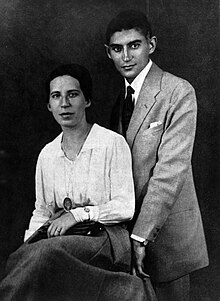
The inferiority complex received in childhood thanks to his father interfered with the writer’s life. He always underestimated himself, both in creativity and in personal relationships. He didn’t like his own appearance; before going out, the young man could stand in front of the mirror for hours, studying his face and combing his hair. Most of all, he was afraid of becoming a laughing stock in the eyes of others, so he dressed exclusively in the latest fashion. Contemporaries considered Franz an intelligent, decent and calm person. Knowing about his fragile health, Kafka went in for sports and always tried to stay in shape.
But in his personal life he never found his happiness, although many girls liked him. The writer, who lived in his own closed world, had no time for intimacy; he generally knew practically nothing about this side of relationships with the fair sex. The friends decided to rectify this situation and forced Franz to visit the local “lupanarium”, where the young writer lost his virginity. Friends hoped that after a night of carnal pleasures, Kafka would be completely delighted, but instead he left there with a feeling of disgust.
Franz led an ascetic lifestyle, and when it came to the crown, he simply ran away from there. He was afraid of a serious relationship with a woman and the obligations of the head of the family. Kafka had a beloved girlfriend, Felicia Bauer, to whom he was engaged twice, but both times the engagement was terminated on his initiative. The writer described the image of this girl in his diaries, but it was very far from reality.
In the writer’s personal life there was another love – translator and journalist Milena Yesenskaya, but, as with his first lover, it never came to marriage.
DEATH:
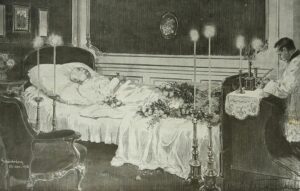
Franz suffered from chronic diseases for many years, the nature of their occurrence is unknown. He had intestinal obstruction, insomnia, and a constant headache. However, Kafka found the strength to resist illness by leading a healthy lifestyle. The writer followed a specially balanced diet that excluded meat, took serious exercise, and preferred fresh milk as a drink. But despite this, his health deteriorated every year.
In August 1917, doctors gave the writer a disappointing diagnosis – tuberculosis. In 1923, Kafka, accompanied by Dora Diamant, went to Berlin, where he wanted to devote all his time to literary activities. This move had a bad effect on the writer’s health; he became significantly worse. Kafka suffered from unbearable pain in his throat, which prevented him from eating. On June 3, 1924, Franz Kafka died in hospital.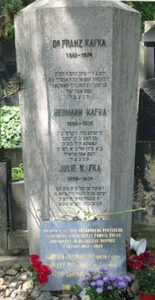
Most likely, death occurred as a result of exhaustion, since Kafka practically did not eat for a long time due to unbearable pain. The resting place of the famous writer was the New Jewish Cemetery in Prague, where he was transported from Berlin.
The memory of a man who made an invaluable contribution to the development of 20th-century literature is captured in several documentaries, monuments and a museum. More than one generation of writers grew up on the work of Franz Kafka, leaving their mark on the history of literature.
SELECTED WORKS:
- Process
- Lock
- Sentence
- Transformation
- In a penal colony
- Knocking on the gate
- Railway passengers
- The truth about Sancho Panza
- Prometheus
- Poseidon
- At night
- On the issue of laws
- From the diaries
- Letter to Father
